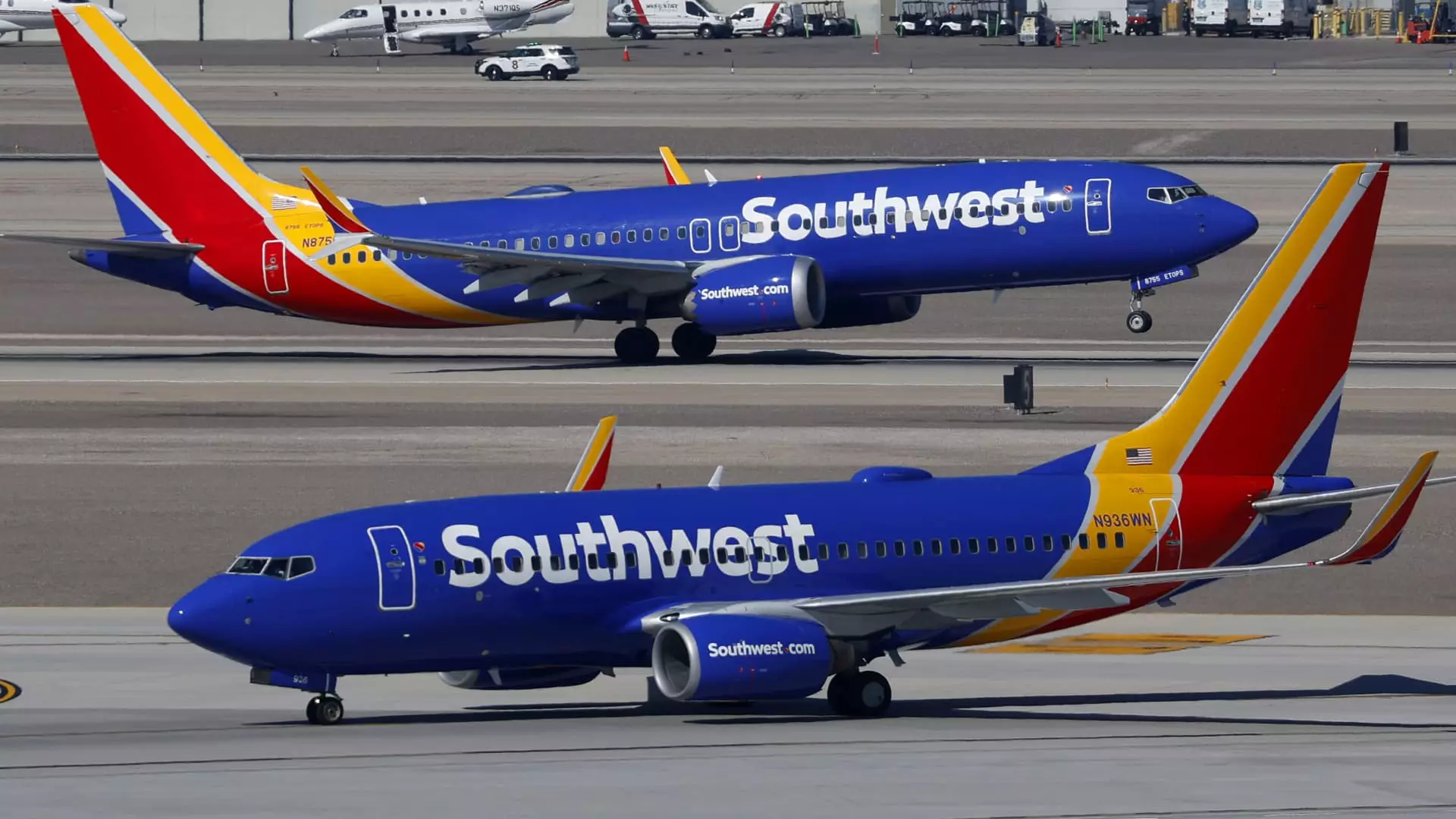For over half a century, Southwest Airlines championed a uniquely consumer-friendly approach—open seating. Travelers cherished the freedom to choose their seats upon arrival, turning the boarding process into a near-ritual, a battle of strategy and patience. This open seating policy distinguished Southwest, fostering a culture of egalitarianism, spontaneity, and cost savings—free checked bags, too. Yet, in a stark pivot toward profit maximization, Southwest’s latest move dismantles this beloved tradition. Starting January 27, passengers will no longer glide onto planes at their leisure but will join assigned seating via a complex boarding order. This change underscores a harsh reality: even the most customer-centric companies are compelled to prioritize revenue over loyalty and history.
Strategic Shift for Marginal Gains
The decision to overhaul Southwest’s boarding system aligns with broader efforts to diversify revenue streams in a competitive landscape. Southwest’s leadership aims to inject nearly $2.5 billion into earnings over the next few years through initiatives like baggage fees, upgraded fare options, and now, assigned seating. These moves, while financially motivated, hold the potential to alienate long-time passengers who valued the airline’s egalitarian ethos. By segmenting boarding groups based on tier, fare class, and loyalty status, Southwest is effectively creating a hierarchy that privileges premium customers while marginalizing standard ticket holders. No longer will carefree spontaneity define the boarding process; now it’s about maximizing efficiency—and revenue—at the expense of passenger comfort.
Sacrificing Customer Loyalty for Corporate Profit
This shift is symptomatic of a broader trend: airlines stripping away service features that once fostered customer loyalty, in favor of short-term financial gains. The elimination of open seating may streamline boarding and reduce turnaround times, but it also imposes a new layer of rigidity that most travelers will find frustrating. Airlines have long argued that assigned seats and fees allow for better revenue management, but at what cost? Sacrificing passenger choice and flexibility in favor of organized queues and priority boarding fundamentally alters the customer experience. It turns travel into an impersonal transaction, prioritizing airline profits over the human element of flying—an attitude that risks alienating the very customers who once felt a sense of fairness and value in Southwest’s operations.
Implications Beyond the Cabin
The real problem lies in the long-term implications for airline loyalty and industry reputation. Once an outlier in customer-friendly policies, Southwest now aligns more closely with competitors that charge for every perk and seat selection. This raises questions about the airline’s future identity: Will it be perceived as a traditional carrier prioritizing profits, or can it retain its core values amidst relentless commercial pressure? The move also highlights a shift in industry standards, where convenience and customer-centric policies take a backseat to revenue generation. Such changes threaten to erode trust in the airline, especially among travelers who value transparency and fairness.
Who Wins and Who Loses?
Undoubtedly, the airline benefits financially from this overhaul. Faster boarding and additional fee streams could add millions to annual revenue. Yet, passengers—especially those who favor spontaneity and egalitarian treatment—are the ultimate losers. Families, frequent flyers, and budget-conscious travelers will have to accept the burden of pre-paid seats or risk being relegated to less desirable positions. While premium customers may enjoy better access, the majority will face a new reality of dictated seat choices and potential frustration. Southwest’s reputation for customer loyalty may suffer as a result, hampering its ability to differentiate itself in an increasingly commodified market.
The Future of Travel Experience
What Southwest is undertaking is emblematic of a broader pattern in the airline industry: the commodification of flying. Once seen as a social equalizer, air travel is increasingly becoming a series of transactional experiences designed primarily for profit. This change reflects a disturbing trend where service quality, passenger comfort, and loyalty are secondary to revenue goals. If airlines continue down this path, the essence of customer-centered travel—which airlines once used to build trust and loyalty—will be lost in the rush for short-term gains. Such policies threaten to turn flying into a frustrating, impersonal chore rather than a pleasant journey.


Leave a Reply